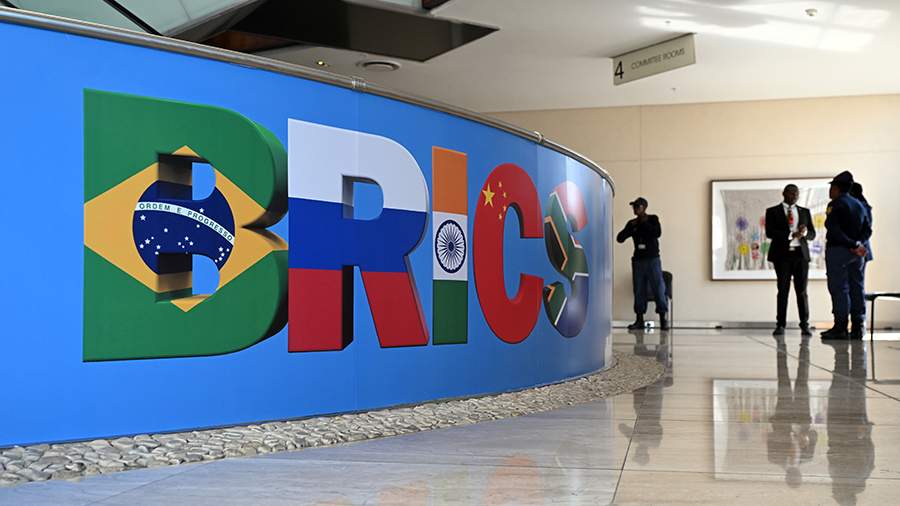
The benefits to Russia of the joining of the new BRICS Six
By Alexey Poroshin
The choice of six new countries to join the BRICS five is not accidental. Egypt is an old ally of Russia, which has the largest army in Africa. Russia has a long history of cooperation with Ethiopia. It is the largest state on the continent in terms of population: 123 million people. It is clear that the level of GDP per capita in the country is low, but at the same time it speaks of a huge potential.
Next year, it isexpect Algeria, Africa's largest economy, with which Russia is actively developing cooperation, will join the association. This is evidenced by the recent state visit of the President of the country to Russia.
To Brazil, which is already a member of the BRICS, Argentina is added - together these are the two largest economies in Latin America. In addition, the state has long dreamed of getting out of the influence of the United States . I think that next year, when Russia presides over the association, we will see Mexico, the financial center of the region, as part of it.
Saudi Arabia and the UAE are the largest countries in the Persian Gulf in terms of economy and export volumes. I think Qatar will join later, which is very important for reducing US pressure and strengthening Russia's position in the region. And also for full cooperation with OPEC on the supply of petroleum products without the use of the dollar.
The long-suffering Iran, which has been under sanctions for many years, closes out the six new countries. This once again proves the multipolarity of the world, given the fact that such diverse cultures are part of the BRICS.
The association has great potential. Over the past decade, the mutual capital investments of the participating countries have increased six times, investments in the global economy have doubled, and cumulative exports have reached 20% of the world indicator.
After the admission of new members, it is assumed that the association's GDP in terms of purchasing power will grow to 37% of the world's, and 46% of the world's population will live in the participating countries. These are mega resources. Only the world's oil reserves in the BRICS - 44%, while the share of the "big seven" is only 3.9%.
The fact that the association is expanding ahead of the Russian presidency in 2024 is a good sign. This status gives additional powers in terms of creating subcommittees and groups, promoting initiatives. This will be a year of opportunities for the Russian Federation to develop new technologies and conduct experiments on export-import operations.
One of the most important areas of work is settlements between states. At the last summit, the heads of all the BRICS countries stated that now the main task is to convert mutual settlements into national currencies as much as possible.
Now there are indeed difficulties with the calculations. For example, Russia's balance of payments with Iran is growing, but so far through alternative mechanisms: cash payments, digital instruments and currencies. Difficult situation with India and Egypt. In the first one, more than $50 billion is stuck, which we are now returning to Russia bit by bit. Egypt has had a huge deficit of dollars for more than six months, the money of our exporters does not return quickly and with a huge discount (up to 25-30%). There are also problems with receiving funds from Saudi Arabia, but they are not related to the lack of US currency.
As a result, it turned out that in the declaration following the results of the summit there was nothing about the single currency of the association. At the same time, there are great difficulties with calculations in national monetary units. For example, China is making every effort to promote the yuan. But in general, there is no common understanding between the participating countries.
This problem can be solved. The accession of Saudi Arabia and the UAE will make it possible to attract capital for the development of large investment infrastructure projects in the BRICS bank (capital may increase up to $100 billion). Then it will become the largest bank in the world system, overtaking the IMF. This is important for increasing the financial stability of the association.
The active increase in the number of participating countries is a big plus for Russia. The BRICS bank is now restricting investments from Russian credit institutions due to the threat of sanctions. But when its portfolio grows to $100 billion, this will allow the association to rate its bank itself, without the use of international financial institutions. Then it will be possible to remove all restrictions on the financing of infrastructure projects related to Russia.
This article originally appeared in Russia at iz.ru and was translated and edited by Rhod Mackenzie
